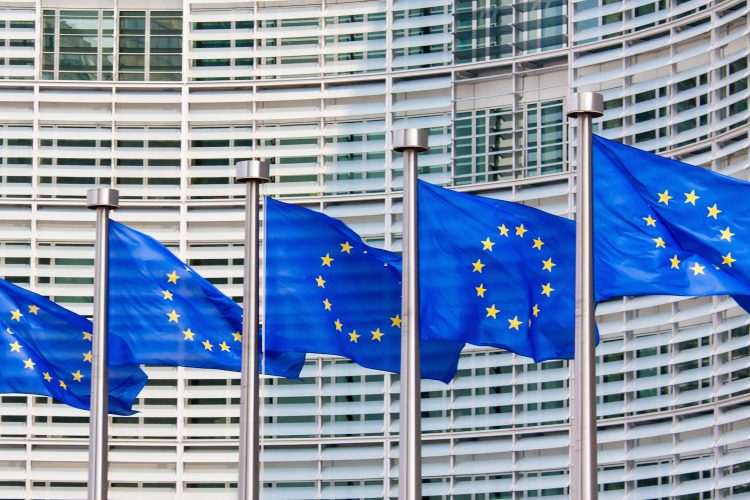EU proposes food waste reduction targets
- Like
- Digg
- Del
- Tumblr
- VKontakte
- Buffer
- Love This
- Odnoklassniki
- Meneame
- Blogger
- Amazon
- Yahoo Mail
- Gmail
- AOL
- Newsvine
- HackerNews
- Evernote
- MySpace
- Mail.ru
- Viadeo
- Line
- Comments
- Yummly
- SMS
- Viber
- Telegram
- Subscribe
- Skype
- Facebook Messenger
- Kakao
- LiveJournal
- Yammer
- Edgar
- Fintel
- Mix
- Instapaper
- Copy Link
Posted: 7 July 2023 | Grace Galler | No comments yet
The EU has outlined food waste reduction targets and is asking Member States to cut their food waste by 10 percent by 2030.


The European Union (EU) has announced a new proposal to tackle food waste, outlining reduction targets for 2030.
In order to “accelerate progress” towards its goal, the European Commission is proposing that its Member States reduce food waste by 10 percent in processing and manufacturing and by 30 percent (per capita) jointly at retail and consumption (restaurants, food services and households) by 2030.
The EU has clarified that it is still “committed to achieving the global Sustainable Development Goal (SDG) Target 12.3”. This includes halving per capita food waste at the retail and consumer level by 2030 and reducing food losses within food production and supply chains.
Back in 2020, there was an EU-wide investigation that monitored food waste levels. The result of this study will reportedly be used as a baseline to assess progress. However, the EU has noted “an earlier reference year may be considered for Member States which provide evidence of action taken before 2020, with monitoring confirming the progress made”.
The EU has said that, by the end of 2027, a formal review of Member States’ progress will be made.
Globally, over a third of all food produced is wasted each year, according to Greenly. Zooming in on the EU, nearly 59 million tonnes of food is wasted annually. Hoping to combat this, the EU has defined tackling food waste as a “triple win”, explaining “it saves food for human consumption; it lowers the environmental impact of food production and consumption; and it helps businesses and consumers to save money”.
From trash to treasure: Revolutionising food redistribution with Olio
But what has the food and beverage industry had to say about the proposed food waste reduction targets? Stephen Jamieson, Global Head of Circular Economy Solutions at SAP, said: “Food wastage plans set out today by the European Union is an extremely positive step forward in addressing a critical component of human-generated climate change.
“Food waste not only puts pressure on valuable resources, but it also contributes to environmental degradation and spotlights social inequalities,” continued Jamieson.
“By adopting a circular economy approach, we can design food systems from the outset that eliminate waste and are regenerative in nature – ensuring food security for the long term.”
Jamieson went on to say that through designing solutions that optimise the entire food system, waste can be minimised “at every stage”. However he noted that “system change can only be effective with the right incentives, measurement approaches and standards to ensure effective collaboration and innovation that supports nature-led solutions and that’s why today’s strategy is so welcome”.
Meanwhile food redistribution company Too Good To Go has said that it “welcomes the European Commission’s proposal” to set legally binding targets for food waste reduction across the EU.
It has stated that it also “supports the shift from non-binding targets to legally binding targets” as it believes it is a “stronger approach to addressing the food waste challenge”.
“Food waste is a massive challenge throughout the supply chain. While our marketplace has helped partners save 239 million meals from going to waste already, we recognise that a lot of perfectly good food is still going to waste,” said Mette Lykke, CEO of Too Good To Go.
To Good To Go says that it has been actively involved in the European Commission consultation process leading up to the proposal.
“As the draft law progresses through the legislative process, Too Good To Go continues to actively engage with political decision-makers at EU and national level. The company remains dedicated to promoting food waste reduction, and offering win-win-win solutions to make that happen,” continued Too Good To Go in a statement”.
Offering some final thoughts, Lykke concluded: “Addressing the world’s food waste issue is not only an ethical imperative but also an opportunity for economic growth and innovation.”
Related topics
Food Waste, Regulation & Legislation, Sustainability, The consumer, Trade & Economy








